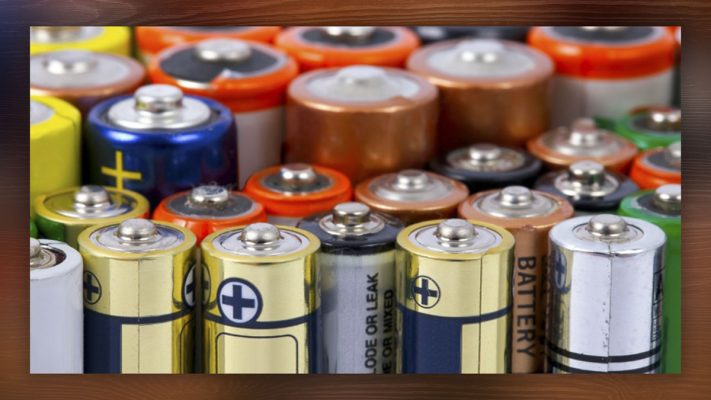
Batteries that end up in household garbage or inside recycling carts can explode, posing significant fire risks during transportation and at transfer stations
VANCOUVER — Clark County Public Health’s Solid Waste & Recycling team encourages residents to celebrate National Battery Day on Feb. 18 by recycling their used batteries at one of several safe, convenient drop-off locations across the county.
Batteries power countless everyday devices that make lives easier and more efficient. However, improperly disposing of batteries can have serious consequences. Batteries that end up in household garbage or inside recycling carts can explode, posing significant fire risks during transportation and at transfer stations. These fires can cause serious harm to sanitation workers and can damage costly equipment at Clark County transfer stations.
Clark County Battery Drop-Off program
Residents can drop off household batteries for free at several participating sites throughout Clark County. Drop-offs are limited to 10 batteries per person per day. Larger quantities must be dropped off at the household hazardous waste (HHW) locations at the transfer stations.
Battery drop-off sites accept:
- Alkaline
- Button and coin cell batteries
- Carbon zinc
- Lithium-ion (Li-Ion)
- Lithium primary
- Nickel cadmium (Ni-Cd)
- Nickel metal hydride (Ni-MH)
- Nickel zinc (Ni-Zn)
- Small-sealed lead acid under 5 pounds (SSLA/Pb)
- All cellphones regardless of size, make, model or age
Battery drop-off sites do not accept:
- Batteries from businesses
- Batteries larger than 300Wh
- Battery-containing products (except cellphones)
- Never attempt to remove batteries that are embedded or built into devices if not readily accessible. Damaging these inner batteries can pose serious health and safety risks, including fire and combustion hazards.
- Damaged, defective, or recalled batteries*
- Vaping or e-cigarette devices and products*
- Vehicle batteries*
- Other hazardous waste*
*These items can be dropped off at the HHW drop-off locations at the transfer stations.
Batteries must be individually bagged or have the ends taped to prevent hazards. To find a nearby drop-off location, go to RecyclingA-Z.com or download the RecycleRight mobile app (downloadable on Apple and Android). Larger quantities and certain specialized batteries can be dropped off at a household hazardous waste facility.
The battery drop-off program is provided by Clark County Public Health and Waste Connections of Washington. For more information, contact solidwaste@clark.wa.gov.
Information provided by Clark Co. WA Communications.
Also read:
- CCSO deputy involved in deadly force incidentA CCSO deputy reported fatally stabbing a DUI suspect during an altercation at the Ridgefield WSP Scale House.
- Opinion: Revolution or revival?Nancy Churchill argues that Washington state is ground zero for a Marxist-style revolution but says a cultural revival is possible through personal responsibility and the America First movement.
- WA governor pressed to veto $1.8B piece of Democrats’ tax billGrocers and restaurateurs are urging Gov. Ferguson to veto a surcharge in HB 2081 that they say will raise food prices statewide.
- CCSO makes arrest in attempted kidnapping investigationA 31-year-old Vancouver man has been arrested in connection with an attempted kidnapping involving a teenage girl near NE 149th Street.
- Changing roles: Brian Witherspoon accepts position as head coach of Camas girls basketballBrian Witherspoon has been hired to lead the Camas girls basketball program after serving as interim boys coach last season.
- Vehicle crashes into Vancouver Fire Station 6 during emergency responseA vehicle crashed into Vancouver Fire Station 6 late Tuesday night while crews were out on an emergency call.
- Letter: ‘It’s said sarcasm is the lowest form of wit’Amboy resident Thomas Schenk criticizes Olympia’s use of “emergency clauses” and other legislative tactics that limit public participation.











